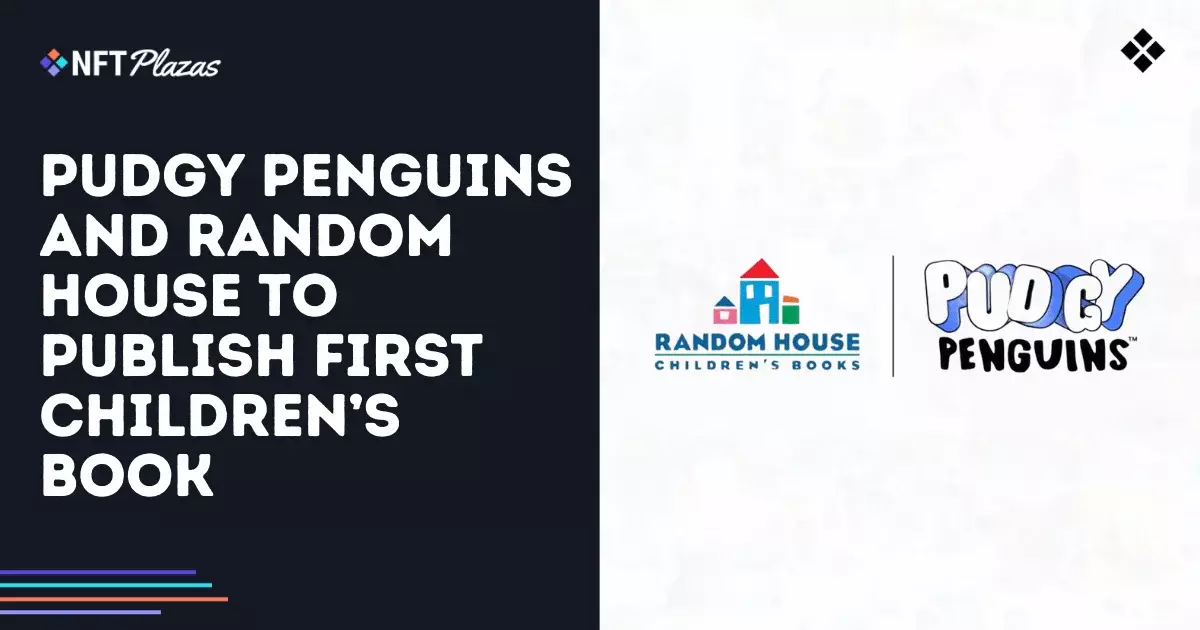When a web3 brand like Pudgy Penguins teams up with a titan like Random House Children’s Books, it raises eyebrows. Is this a clever pivot toward traditional media, or is it an insecure clutch at straws? With a price tag of $9.99 for a hardcover aimed at the 4 to 8 age demographic, this venture is positioned just in time for gift-giving season. But will parents buy into this new cultural phenomenon or dismiss it as another marketing ploy existing solely in the digital realm? The stakes are high, making this direction a gamble that warrants scrutiny.
Target Audience: A Double-Edged Sword
Pudgy Penguins have carved a niche in the digital realm populated by NFT enthusiasts and children alike. However, the transition from pixels to printed pages focuses their efforts on a very different audience—parents and their small children. The characters, particularly Pongo, possess a charm that could resonate with kids, yet their initial appeal was rooted in a unique digital landscape that required a certain level of understanding from its audience. By straddling these two worlds, Pudgy Penguins risks alienating both established fans and skeptical parents who may not understand the web3 ethos.
The Narrative: Chaos and Conflict
The plot of “Worst Birthday Gift Ever” revolves around a simple premise: Pongo receives real swords instead of inflatable ones. While this sounds entertaining, it can be analyzed on a deeper level. What message does it send about expectations and reality, and is this the kind of lesson we want our young readers to internalize? The blend of humor, character conflict, and resolution reflects traditional picture book narratives. However, this storyline has the potential to evoke mixed reactions. Some may find it amusing; others may consider it too chaotic for young readers, questioning its appropriateness.
Growing Beyond Digital: What’s Next?
Launching a picture book is just one piece of the pie. Pudgy Penguins have already dabbled in toys and gaming and even made their mark on TikTok and Instagram, but venturing into publishing raises significant questions about brand longevity. Will consumers accept this foray into traditional media, or will it be viewed as an opportunistic attempt to capitalize on static consumer trends? The collaboration hints at an ambitious multi-platform strategy, yet the fear remains that overstretching could dilute the brand’s essence.
Legacy and Future Impact
What does signing a deal with Random House mean for a brand born in the less-traditional NFT landscape? While it’s easy to hail this as a breakthrough for digital-first brands in established markets, it also opens a Pandora’s box of challenges. As harsh as it may sound, this may well be a case of “too little, too late.” If Pudgy Penguins fail to resonate with non-digital audiences, they risk being remembered as an overhyped flash in the pan rather than a pioneering force in modern storytelling.
The Bottom Line: Financial Literacy in Children’s Literature
What stands out most is the fiscal responsibility that could be derived from this collaboration. Young readers are not just consumers; they are future investors and economic players. As children’s literature increasingly blends lessons in financial literacy with entertainment, will Pudgy Penguins’ book follow suit, or will it merely entertain without offering substance? The potential for providing meaningful economic narratives exists, but only time will tell if this effort succeeds or gets swept aside by more impactful content.















